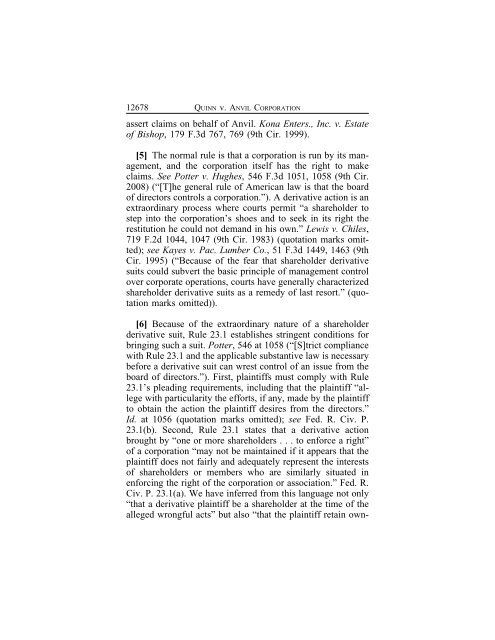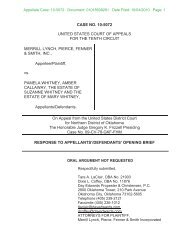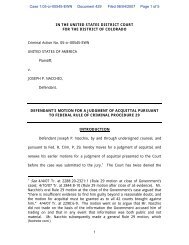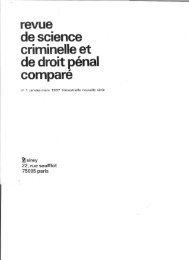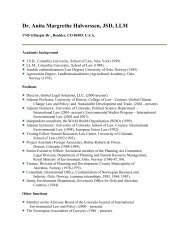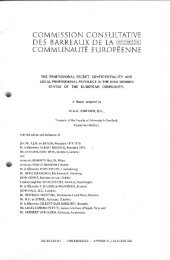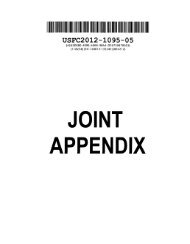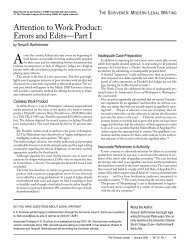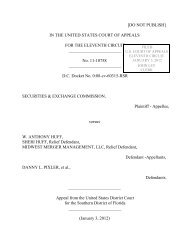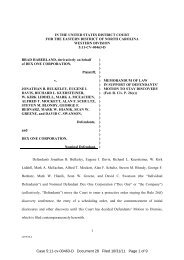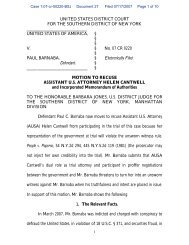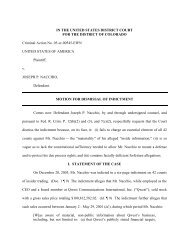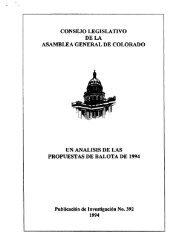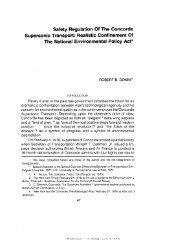Quinn v. Anvil Corp.
Quinn v. Anvil Corp.
Quinn v. Anvil Corp.
You also want an ePaper? Increase the reach of your titles
YUMPU automatically turns print PDFs into web optimized ePapers that Google loves.
12678 QUINN v. ANVIL CORPORATION<br />
assert claims on behalf of <strong>Anvil</strong>. Kona Enters., Inc. v. Estate<br />
of Bishop, 179 F.3d 767, 769 (9th Cir. 1999).<br />
[5] The normal rule is that a corporation is run by its management,<br />
and the corporation itself has the right to make<br />
claims. See Potter v. Hughes, 546 F.3d 1051, 1058 (9th Cir.<br />
2008) (“[T]he general rule of American law is that the board<br />
of directors controls a corporation.”). A derivative action is an<br />
extraordinary process where courts permit “a shareholder to<br />
step into the corporation’s shoes and to seek in its right the<br />
restitution he could not demand in his own.” Lewis v. Chiles,<br />
719 F.2d 1044, 1047 (9th Cir. 1983) (quotation marks omitted);<br />
see Kayes v. Pac. Lumber Co., 51 F.3d 1449, 1463 (9th<br />
Cir. 1995) (“Because of the fear that shareholder derivative<br />
suits could subvert the basic principle of management control<br />
over corporate operations, courts have generally characterized<br />
shareholder derivative suits as a remedy of last resort.” (quotation<br />
marks omitted)).<br />
[6] Because of the extraordinary nature of a shareholder<br />
derivative suit, Rule 23.1 establishes stringent conditions for<br />
bringing such a suit. Potter, 546 at 1058 (“[S]trict compliance<br />
with Rule 23.1 and the applicable substantive law is necessary<br />
before a derivative suit can wrest control of an issue from the<br />
board of directors.”). First, plaintiffs must comply with Rule<br />
23.1’s pleading requirements, including that the plaintiff “allege<br />
with particularity the efforts, if any, made by the plaintiff<br />
to obtain the action the plaintiff desires from the directors.”<br />
Id. at 1056 (quotation marks omitted); see Fed. R. Civ. P.<br />
23.1(b). Second, Rule 23.1 states that a derivative action<br />
brought by “one or more shareholders . . . to enforce a right”<br />
of a corporation “may not be maintained if it appears that the<br />
plaintiff does not fairly and adequately represent the interests<br />
of shareholders or members who are similarly situated in<br />
enforcing the right of the corporation or association.” Fed. R.<br />
Civ. P. 23.1(a). We have inferred from this language not only<br />
“that a derivative plaintiff be a shareholder at the time of the<br />
alleged wrongful acts” but also “that the plaintiff retain own-


